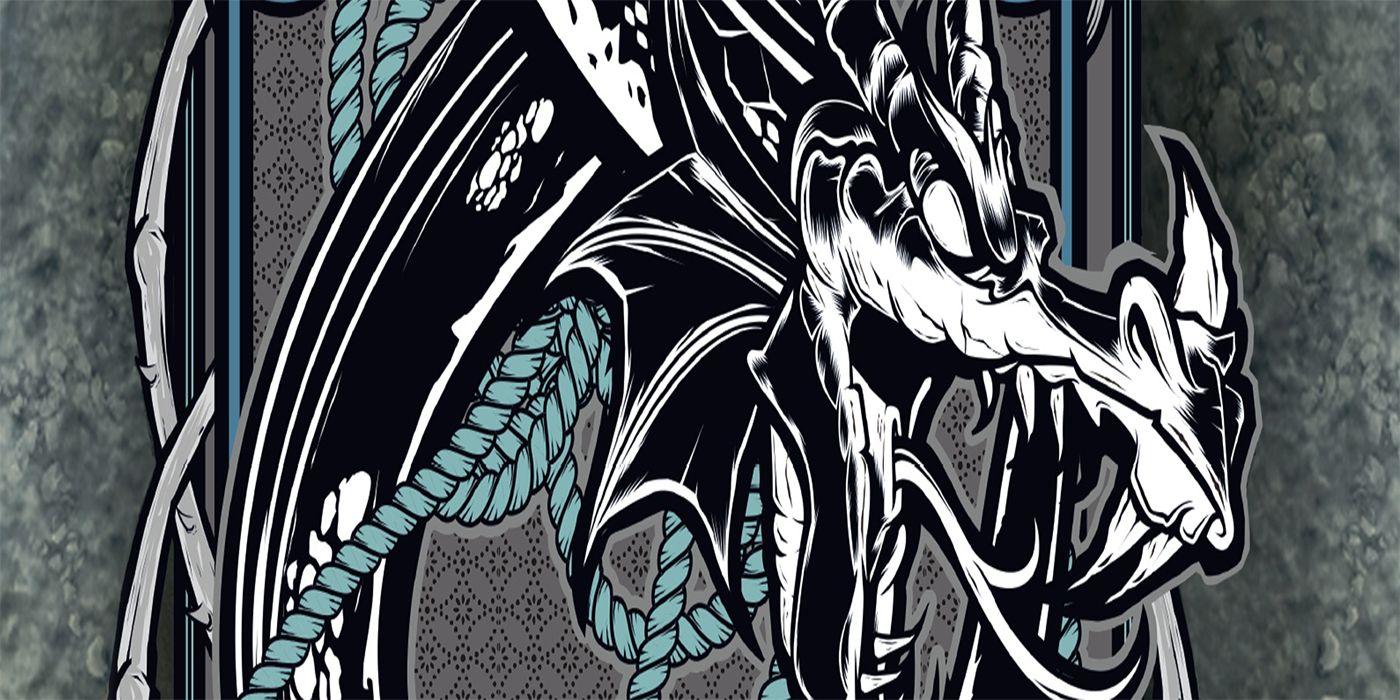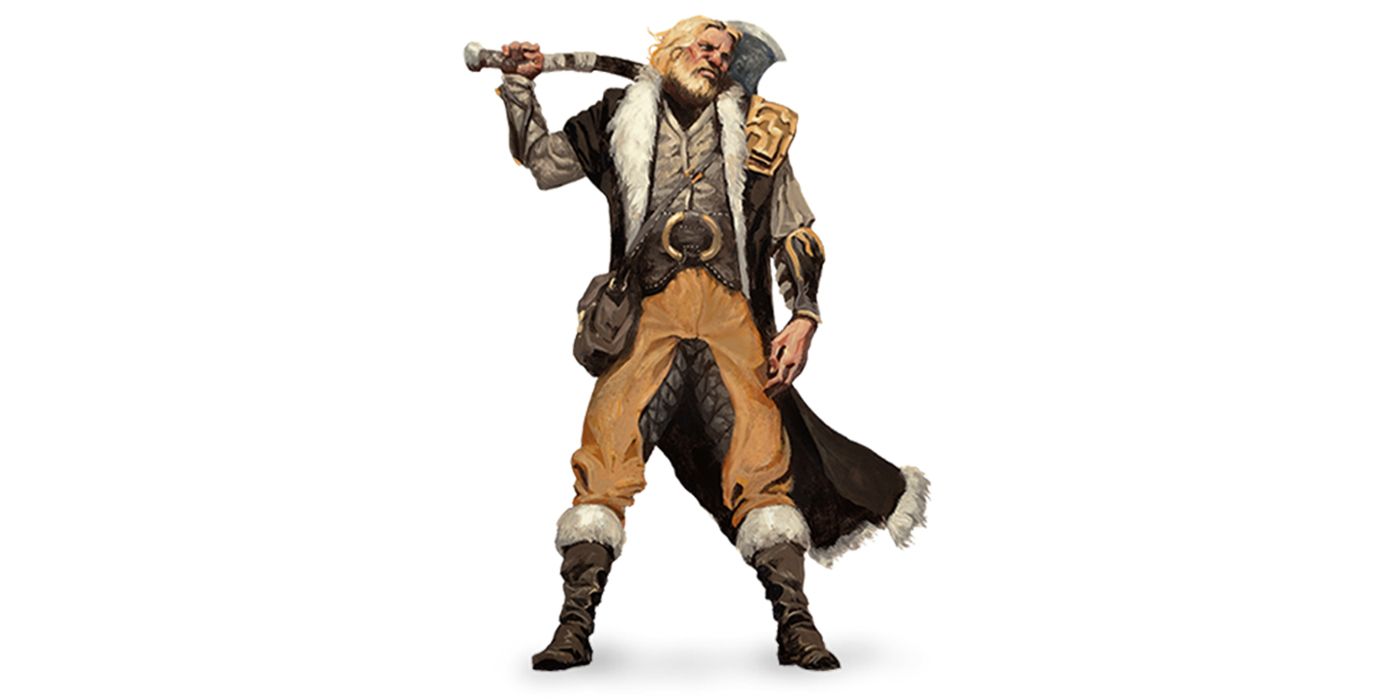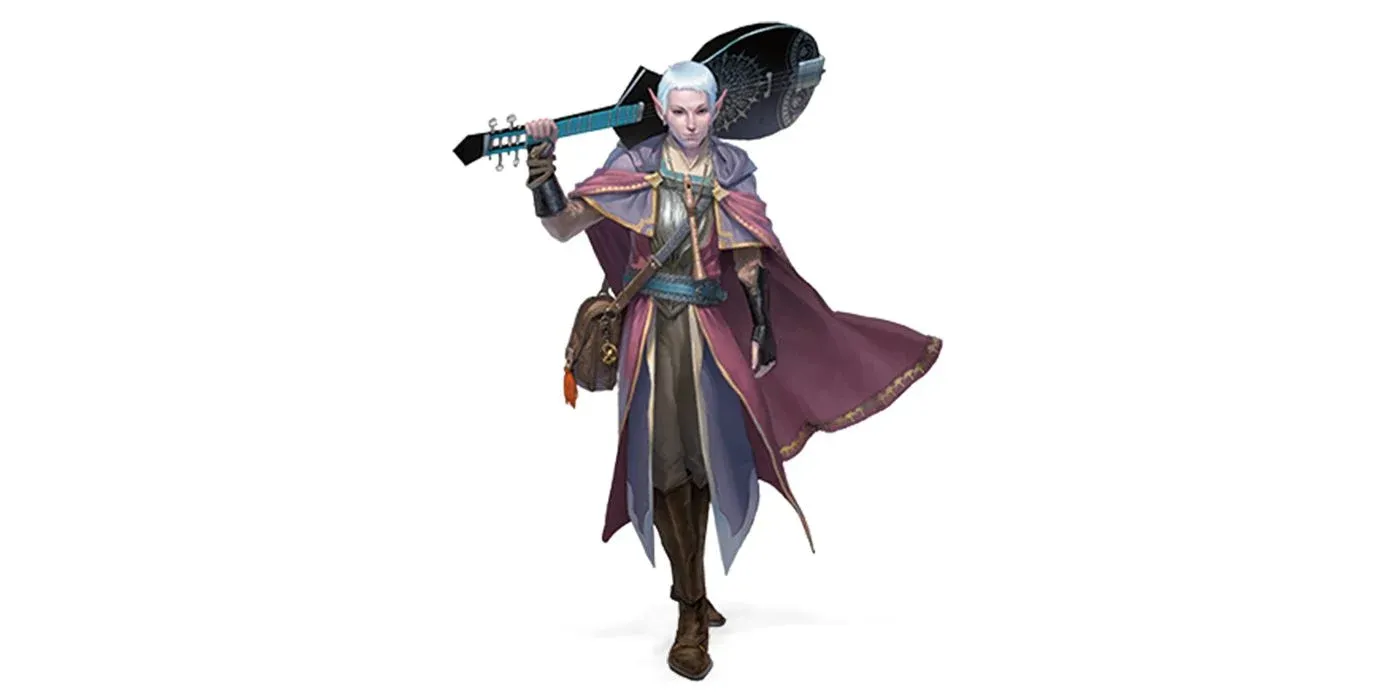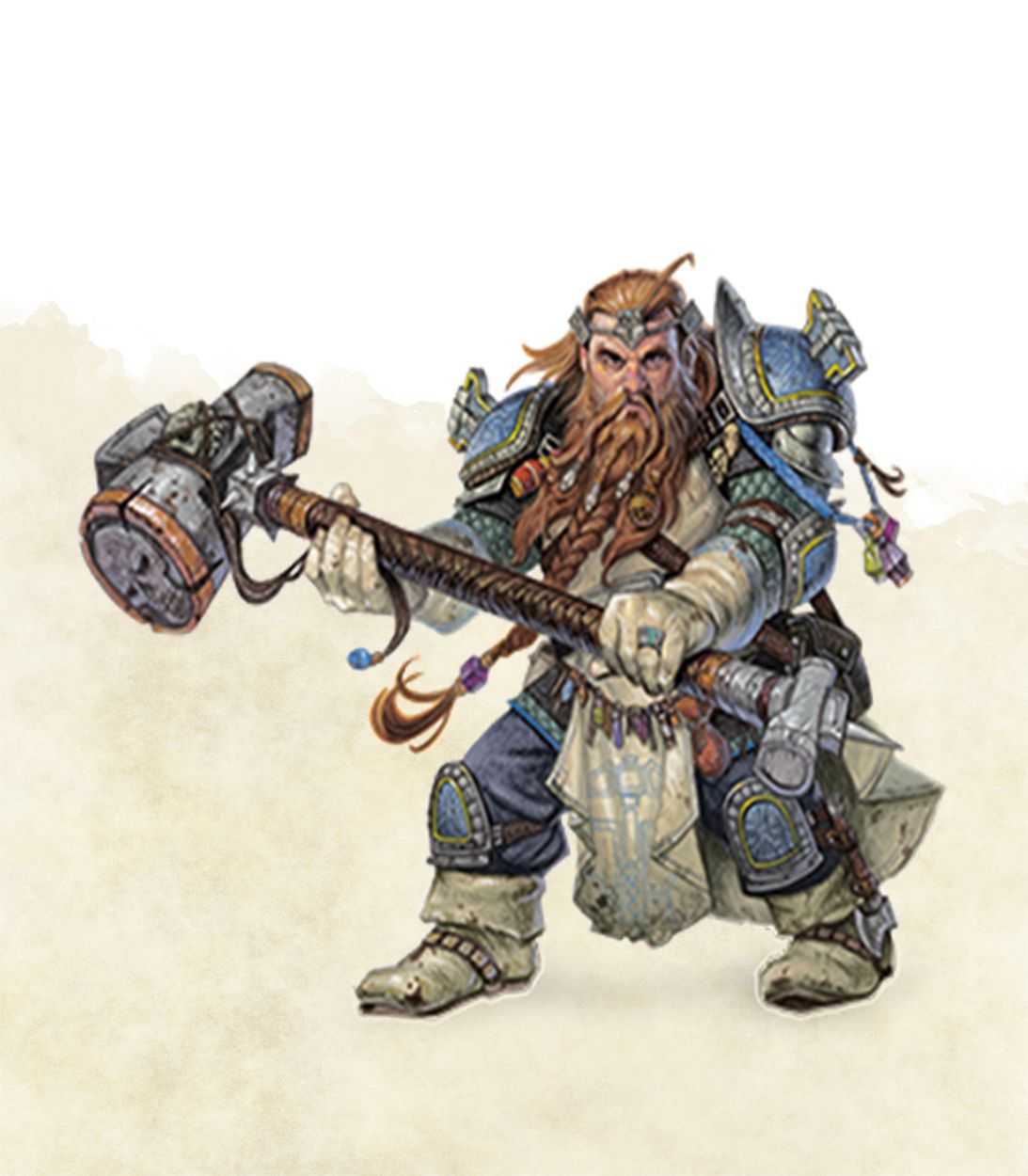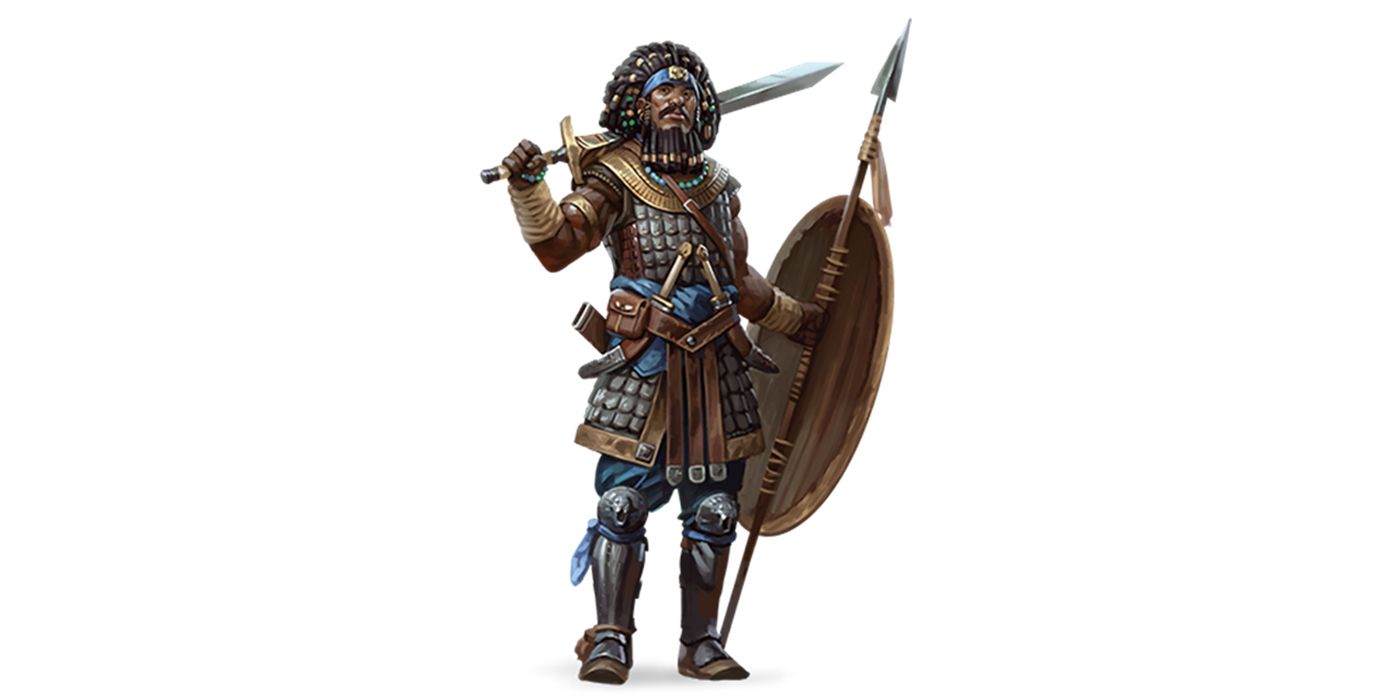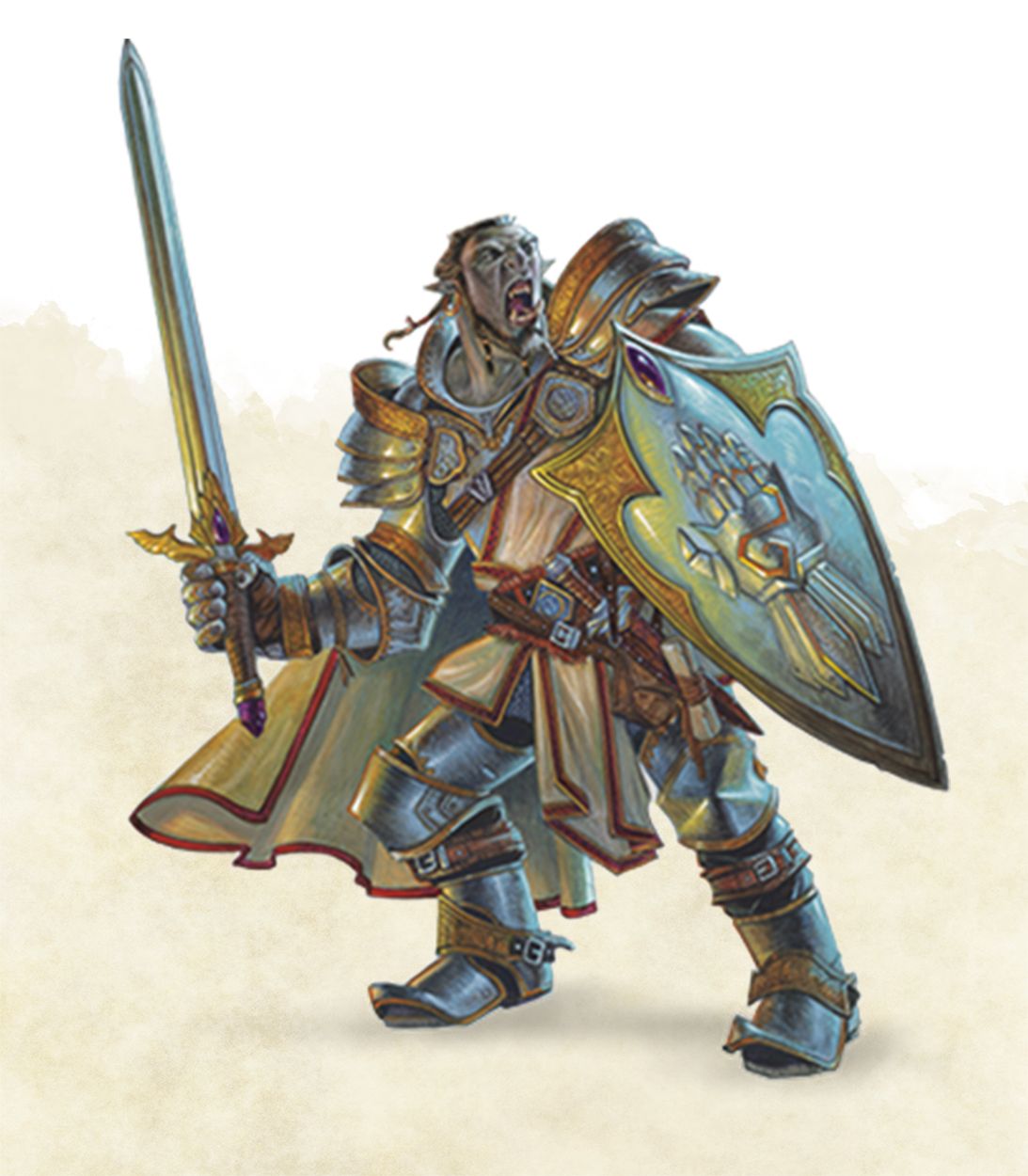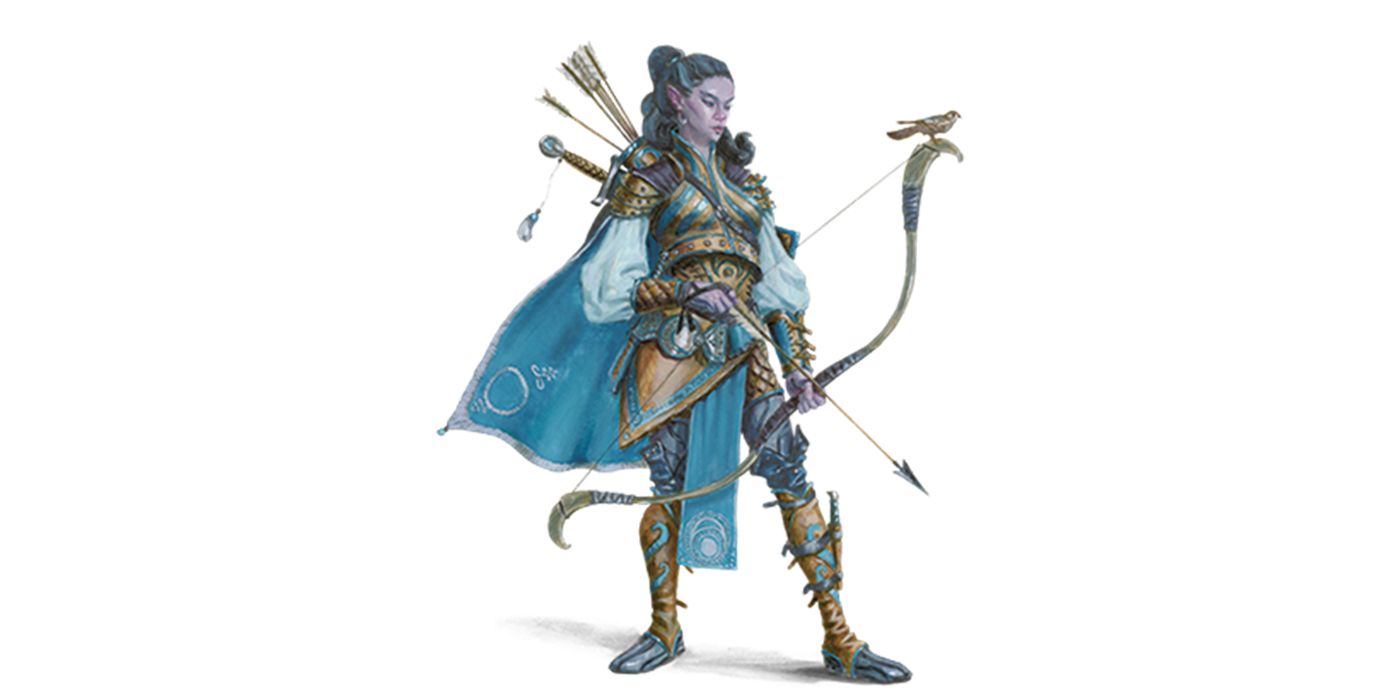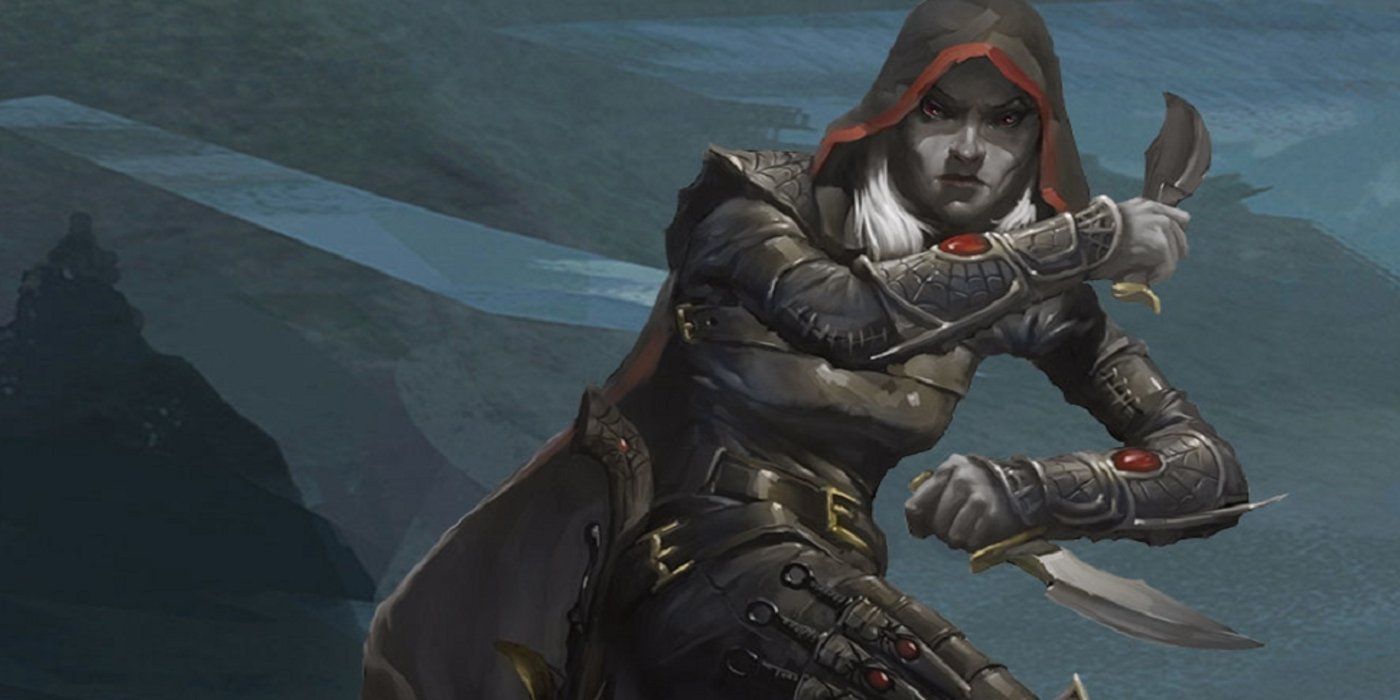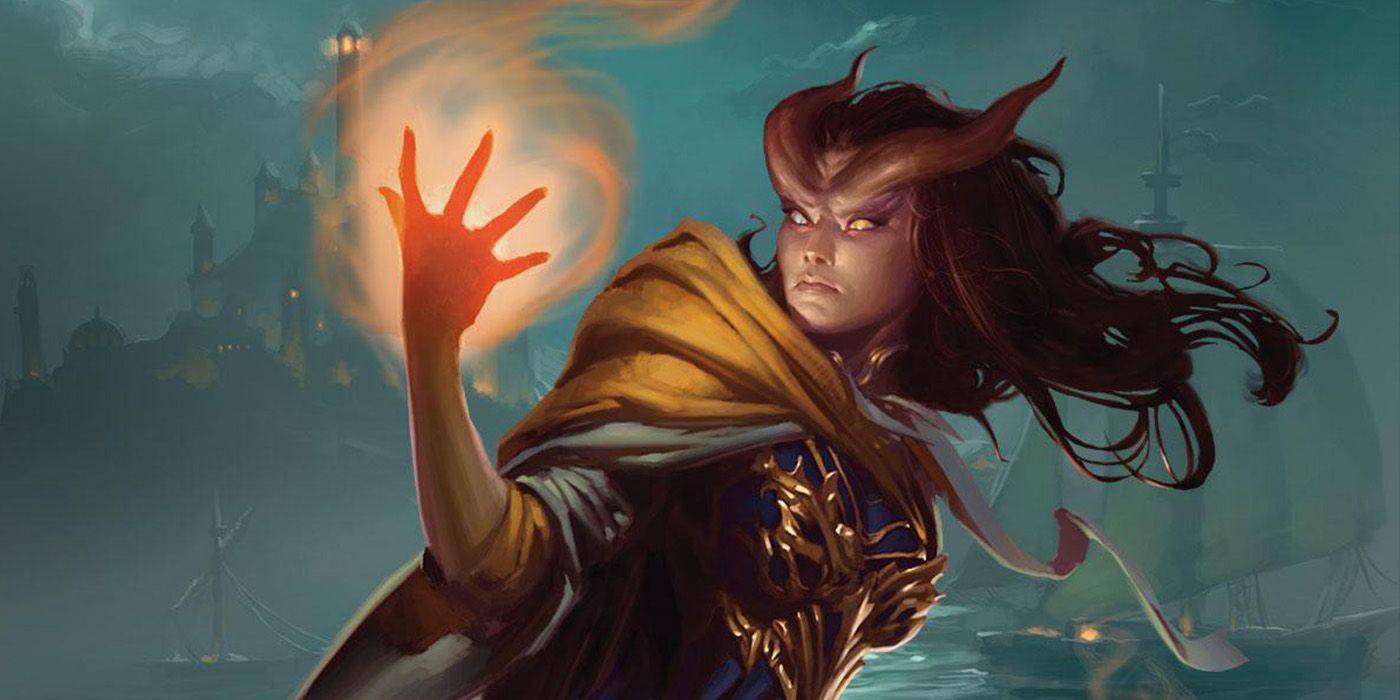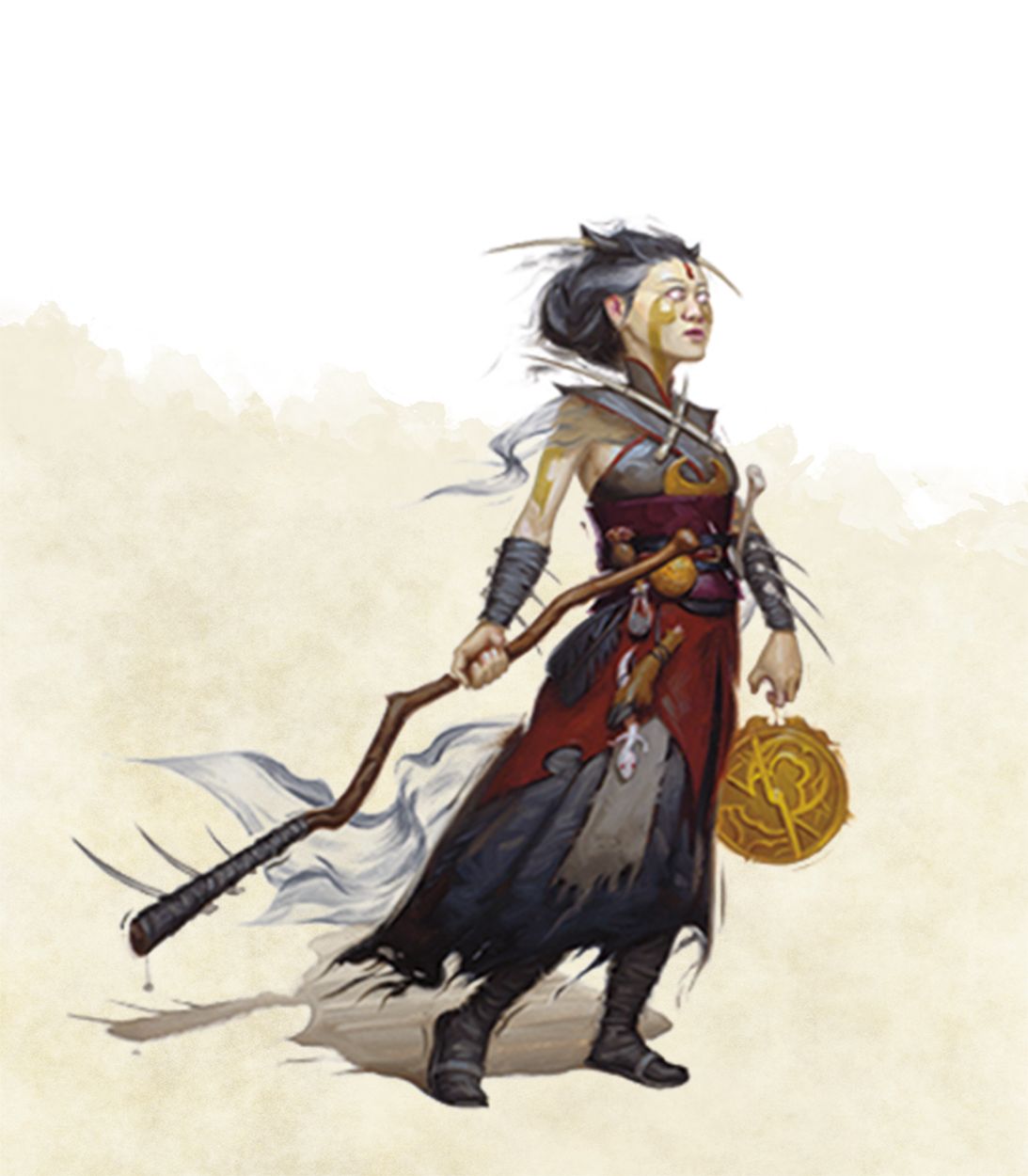Wizards of the Coast has just released a new Unearthed Arcana for D&D, and this one's a big one. Included in this release are reworks and revisions for every core class in Dungeons & Dragons 5th edition. The changes are fairly unprecedented, as aside from the Ranger's rework, very few changes have been made since 5th edition's release.
For those unfamiliar with the dice based dungeon crawl, Dungeons & Dragons is a tabletop role-playing game which relies entirely on pen and paper, dice, and imagination. The Unearthed Arcana are a set of unofficial rules and changes released by the creators of Dungeons & Dragons for fans to play test and give their opinions on.
But which classes received major changes? And how will this affect players' characters and their experience with the game? Every class got something new, but some (like the Rogue) only had one or two changes, while others have a page or more of revisions. Players will be happy to know, though, that as a general rule, nothing was outright taken away, and classes received improvements, clarifications or replacements of their existing abilities. And as with all Unearthed Arcana, the document states that it is the DM's discretion how many, if any at all, of these variants are available to players to use.
Barbarian
Barbarians are ruthless combatants that rely on brute strength and rage to overpower their foes. The Barbarian is receiving only two changes, but this makes sense when one considers that Barbarian is already a very solid class that is popular among players. Both the Barbarian's variant class features are replacements rather than upgrades, and they help the Barbarian to feel more versatile. The Barbarian's danger sense is replaced with survival instincts, swapping out better dexterity saving throws for a choice of skill proficiencies. The skill proficiencies are particularly impressive because they include specialization as well. Furthermore, fast movement (a passive ability that increases speed) is replaced by instinctive pounce, which allows the Barbarian to close distance with his foes more quickly and easily. These changes support the idea of natural cunning and offensive might Barbarians are known for.
Bard
Bards are wandering minstrels, vivacious storytellers, and the premier class for players that want to specialize in utility and support. Wizards of the Coast was very gracious to Bards, granting them a host of feature enhancements that all play directly into versatility and teamwork which Bard characters covet. For starters, the Bard spell list is expanded, adding a couple more (mostly healing and illusion) spell options to each level. Their trademark bardic inspiration now can effect damage and healing on friendly spells, but the most important addition is Spell Versatility. This addition to bardic spell casting allows the Bard to switch one spell he knows for another after every long rest, meaning that, given enough time, the Bard can be prepared for any situation.
Cleric
Bulwarks of faith, Clerics stand steadfast in their devotion to a deity. Whether they are are solemn healers granting life or righteous warriors dealing judgement, Clerics are a valuable member of any party. This Unearthed Arcana seems to focus on the latter variety of Cleric, bestowing them with multiple new, primarily offensive, options. An expanded spell list features heavy hitting spells such as Wrathful Smite and combat oriented buff spells such as Aura of Life. Spellcasting is further improved with the ability to replace cantrips upon leveling up and use channel divinity to restore spell slots. Finally, blessed strikes allows Clerics' spells and weapon attacks to be more punishing.
Druid
Druids are one with nature, and use this special connection to harness its power, taking the form of various beasts and bearing the full brunt of nature's force against unwitting foes. As with most spellcasters, Druids are now able to switch out cantrips upon leveling up and can enjoy an expanded spell list. These additional spells grant the Druid mastery over the elements with spells such as cone of cold and immolation, while also expanding on their healing capabilities with powerful, life giving spells like revivify and even power word heal. That said, the most thematic addition is the ability to use wild shape uses to summon a fey spirit to aid in battle.
Fighter
A brutal swordsman, skilled archer, deadly spearman, or master tactician, the Fighter is the most recognizable and perhaps most diverse class in all of Dungeons and Dragons. IT is such a solid and well designed class as is that it did not need much in the way of improvements, so instead the Fighter now has more choices. The battle master archetype has access to maneuvers which give her unique ways to affect the environment, her teammates, or the enemy. The Fighter now has access to seven more of these techniques, as well as a fighting style which improves their effectiveness.
Monk
The Monk is a paragon of martial arts, able to deliver crushing blows with nothing but their bare hands. Monks can harness their ki to enhance these blows or gain access to a host of other benefits. Though all Monks are more than capable of delivering a healthy dose of lethality with unarmed strikes, they can be just as if not more deadly with certain weapons. In the past, Monks had to select a weapon from a preset list of weapons. Now, as of this Unearthed Arcana, they may choose a certain number of Monk weapons as they see fit, with only a few restrictions. This expands the possibilities for Monk characters quite a bit. The monk's ki abilities have also been enhanced, allowing them to make additional strikes whenever spending their ki points and even heal themselves with this energy.
Paladin
A Paladin is a warrior with a cause, and what that cause is varies widely between Paladins. It used to be that all Paladins were warriors of justice, knights in shining armor always willing to do the right thing and seek out and destroy evil. Now, Paladins devote themselves to many things, be it justice, goodness, law, or even vengeance. While Paladins are capable of spell-casting, most of the options available lean towards martial oriented characters. The revisions in this Unearthed Arcana aim to fix that, expanding their spell list, granting a fighting style that actually gives the Paladin more spells, and allowing them, like the Cleric, to use their channel divinity feature to regain spell slots. It will be interesting to see more spell based Paladins in Dungeons & Dragons.
Ranger
Rangers are masters of tracking and survival, and specialize in dealing with specific types of foes and terrains. A ranger in his element is a force to be reckoned with, yet the one class played the least in Dungeons & Dragons is ranger. It seems that, though rangers are able to do many things well, other more specialized classes can perform those tasks better. As such, the ranger has received another massive overhaul. The changes start by giving the ranger more potent options at first level, such as the ability to gain a climbing and swimming speed, or to grant oneself temporary hit points.
Beyond that, the Ranger's trademark favored enemy ability is replaced by favored foe. Rather than choosing one type of enemy at character creation and being more adept at fighting that, the Ranger selects an individual during combat who then becomes his favored foe. He's able to change this frequently, ensuring the he is equally useful in all situations. The Ranger's spell-casting capabilities have also been significantly enhanced, has he now boast an expanded spell list, a fighting style similar to the Paladins that grants more spells, and the spell versatility of The Bard, allowing the ranger to switch out spells over the course of a long rest. They also periodically gain spells which they can cast without expending spell slots, and even gained the ability to make themselves temporarily invisible.
Despite all this, the coolest change to the Ranger class is the addition of primal beasts. These beasts of air and earth are extremely useful companions, and provide the long sought-after answer to the question of why animal companions have always been lackluster. These beasts get stronger as the Ranger does, and the Ranger can revive the beast if he acts quick enough after its death. Though this is the second overhaul to the Ranger class, it seems very promising, and may bring this character class back to the table.
Rogue
Rogues are cunning thieves, devilish tricksters, or deadly assassins, and all use the wits and dexterity to outmaneuver and out smart foes. Rogues are another example of a class that is very well built and very popular among players, and which received few changes. That said, the one change Rogues did receive is pretty substantial. Rather than relying on brute force, Rogues depend on their sneak attack in order to do damage comparable to that of heavy hitters like the Fighter or the Barbarian.
In order to use the sneak attack ability, the Rogue must either surprise the target, attack a target who's engaged with one of his allies, or have advantage on his attack roll. The new enhancement to the Rogue's cunning action (which allows them to dash, disengage, or hide while still being able to attack and move as normal) enables him to gain advantage on his next attack as a bonus action. This means that in almost every circumstance, the Rogue will have some way to get much needed extra damage dice from the sneak attack ability.
Sorcerer
Sorcerers are the embodiment of natural arcane talent, their ability to grasp and utilize magic with little to no training sets them apart from the likes of Wizards and Warlocks, who derive their magic by other means. In contrast with Wizards, Sorcerers have always been more spontaneous, able to call upon and shape their magic more freely. This trait is exemplified in these revisions, as the Sorcerer gains access to an extended spell list and the incredible spell versatility which it shares with the Bard and the Ranger. The Sorcerer is also treated with new ways to spend her sorcery points, allowing her to imbue weapons with magic or grant herself temporary hit points. Finally, the Sorcerer's claim to fame, her metamagic that allows her to shape spells, is expanded with three additional options making them more diverse than ever before.
Warlock
The Warlock is an enigmatic and complex spellcaster who gains his power by making a pact with a powerful entity. Warlock players, an already expansive group, are in for a treat, as the class is being awarded with numerous enhancements to their abilities. For starters, the Warlock is the last class to be granted spell versatility. This is a big deal for Warlocks, as they have very limited spell slots with which to make use of their spells, and have some unique limitations on their spell-casting. A relatively short expanded spell list is a nice touch as well, but the big changes here lie in the Warlock's eldritch invocations. Warlocks of every pact gain access to a host of new options when choosing their eldritch invocations, some of which include more powerful familiars, a more versatile book of shadows, and even teleportation using the Warlock's talisman.
Wizard
Studious and knowledgeable, Wizards understand magic better than any other class. They use this knowledge to learn a wide host of spells and even alter the fabric of reality itself. The Wizard class received few changes, and those changes it did receive don't really stand out. An incredibly small (only four spells) expanded spell list and cantrip versatility are the only benefits Wizards will reap from this Unearthed Arcana.
All of these class changes are a welcome sight, given that Wizards of the Coast has been somewhat silent lately in regards to new 5th edition news outside of The Adventurers League. Many classes received much needed improvements, and even the classes which were already in a good spot got some minor upgrades. Time will tell if these variant features will make it past the play test phase, and into an official Dungeons and Dragons book.
Dungeons and Dragons is available now.

